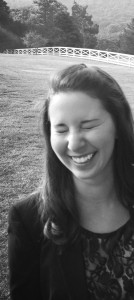Musings from Students of the Pardes Institute of Jewish Studies in Jerusalem
Posted on January 8, 2015 by Suzanne Hutt
This week’s parsha, Shemot, is the first in the Book of Exodus. It tells of the beginning of  Moshe’s life and the story of Passover. In the beginning of the parsha, we hear of Pharoah’s evil decree, in which he commands the midwives to kill all of the male Hebrew babies. The midwives, however, do not follow his orders. When asked why, the midwives tell Pharoah it is כי חיות הנה, because they, the Hebrew mothers, are vigorous. This word, חיות , was very curious to me. My JPS Tanakh translates it as “vigorous,” but at the root of the word is חי, life. What does it mean for the Hebrew mothers to be so full of life that the midwives could not carry out the decree?
Moshe’s life and the story of Passover. In the beginning of the parsha, we hear of Pharoah’s evil decree, in which he commands the midwives to kill all of the male Hebrew babies. The midwives, however, do not follow his orders. When asked why, the midwives tell Pharoah it is כי חיות הנה, because they, the Hebrew mothers, are vigorous. This word, חיות , was very curious to me. My JPS Tanakh translates it as “vigorous,” but at the root of the word is חי, life. What does it mean for the Hebrew mothers to be so full of life that the midwives could not carry out the decree?
Rashi comments on Exodus 1:19 that this word connects to the Aramaic word for widwives, חיתה, which could mean that the Hebrew women were just as skilled as midwives. Thus, if the midwives were suspected of criminal activity, they could easily lose their jobs. Or, Rashi continues, it could be referencing the word חיית, wild animals. This would fit with the animal imagery ascribed to the 12 tribes of Israel, as well as the reference in Ezekiel 19:2 in which a mother is described as a lioness.
Hirsch takes this one step further. The midwives are saying that the Hebrew women are full of vitality and strength. They are like animals in the sense that they can give birth without assistance: “They need nobody else.” This commentary struck me on a personal level. Taking it out of the context of giving birth or killing babies, I thought about this in my own life as a Hebrew woman, this idea of not needing anybody else.
I have always had a hard time asking for help. It makes sense to me psychoanalytically, that as the youngest in the family I probably wanted to assert myself and feel that I could do things competently on my own. I always resisted help on homework or art projects, feeling that if I couldn’t do something on my own, it didn’t count. Like I couldn’t take pride in my own work or my own accomplishments if I didn’t do them all by myself.
Well, over the past year or so I’ve realized that that is a horrible way to go through life. As my sister said to me, “It’s not about just asking for help; it’s about asking for support.” The truth is, we all need help sometimes. Being vulnerable, asking for help, reaching out to the people I love and trust, all of that makes for such a better journey. I’ve learned that if my struggles can’t be shared with my family and friends, my triumphs are far less meaningful. One of my favorite songs by The Lone Bellow is titled, “You Never Need Nobody.” The title and its repetition in the chorus of the song, I think, are meant to sound preposterous. We all need somebody.
As my semester of learning at Pardes comes to a close, I can safely say that I have learned the immense value in asking for help. From day one, I recognized just how much I wanted to learn and try to understand – about Jewish texts, about Judaism, and about myself – and that I could only do that with the help of those around me. I reached out to teachers, peers, and neighbors, and I have experienced just how gratifying it is to connect with someone over something as simple as a question. “What does this word mean?” “Where can I find this source?” “Why is the halakha like this?” “Can we talk about this further?” “How do I use my oven?” “Can you help me?” One simple question could lead to a much deeper relationship. I used to think that if I let too many people in, or if I asked for their guidance too much, I would lose my own guiding voice. The incredibly wise and generous people I have met at Pardes have shown me that asking for help doesn’t mean you’ll lose yourself; it means you’ll gain a community.